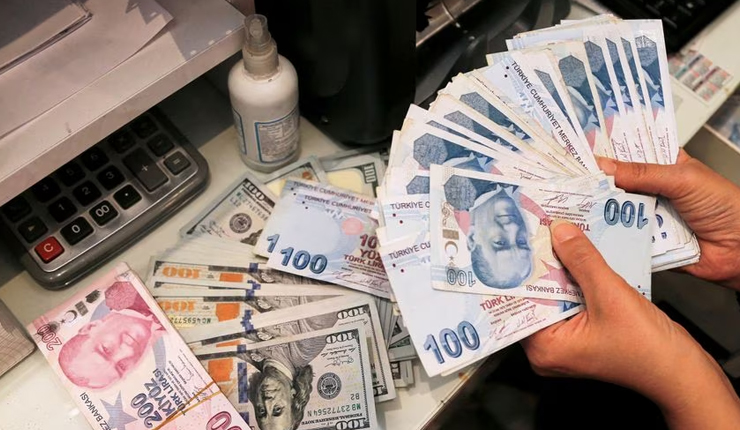Turkish central bank resorts to $7 billion worth of reserves during the past two weeks, in a way to stabilize the lira, with the recent devastating earthquakes impacting different sectors in the country, Reuters reported on Tuesday.
The reserves could remain under pressure during the upcoming weeks, according to bankers.
While one of the earthquake’s aftermath is the closing of the stock exchange, the lira had a 0.2 percent decline in foreign exchange markets opposing the U.S. dollar since the first earthquake hit on February 6.
Data by the central bank show Forex reserves dropped by $4 billion following the earthquake, other calculations by three bankers show another drop by $3 billion last week.
The bank has balanced the FX market by channelling its new forex revenues to the market for a long time, especially from exports, said a trading desk manager of a bank.
The reserves cannot be sustained for a long time with the reserve adequacy is low, added the banker, predicting that the continuation of the reduction steps to meet the foreign exchange demand.
The central bank fills up its reserves in multiple ways; requiring exporters to sell a portion of revenues to it, or urge companies and individuals to convert hard currencies for FX-protected lira deposits, or KKM.
The Turkish government worked on cooling demand for FX following the earthquake, by urging banks to conduct derivative transactions on Borsa Istanbul and widening the spread in FX and gold trades.
The central bank would remain under pressure to tap reserves and keep the lira stable in the short term, flows of international aid will help in easing the pressure, said bankers.
JPMorgan estimated the earthquake’s direct impact to buildings and infrastructure reached $25 billion, and that international aid can help easing the pressure on the lira.
Türkiye has been trying to stabilise its currency as a way to ease the way for the central bank to drop rates, with inflation reaching 85 percent last year.
